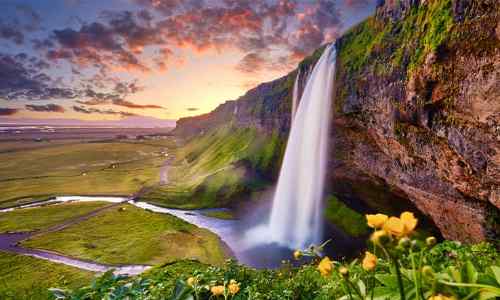



 Tech & IT
Tech & IT
 Business
Business
 Coding & Developer
Coding & Developer
 Finance & Accounting
Finance & Accounting
 Academics
Academics
 Office Applications
Office Applications
 Art & Design
Art & Design
 Marketing
Marketing
 Health & Wellness
Health & Wellness
 Sounds & Music
Sounds & Music
 Lifestyle
Lifestyle
 Photography
Photography
More Learnfly
Business Solution Become an Instructor"Landscape photography captures the awe-inspiring beauty of the natural world. Through meticulous composition and expert use of natural light, photographers transform scenic vistas into mesmerizing images. It's an art form that celebrates the grandeur of nature, conveying a sense of wonder and inviting viewers to immerse themselves in the breathtaking landscapes captured through the lens."












Learn more topics in various categories at one place. Explore unlimited courses in other categories and up-skill yourself today.

 Jazeb Akram
Jazeb Akram 4.2 771056 Beginner Level

 John Hedengren
John Hedengren 4.1 568974 All Level

 Ranjan Pandey
Ranjan Pandey 4.1 346662 All Level

 Muhammad Ahsan Pervaiz
Muhammad Ahsan Pervaiz 4.2 101263 All Level

 Pieter Vliegenthart
Pieter Vliegenthart 4.6 100852 All Level

 Jerome P.
Jerome P. 4.8 100774 All Level

 Vikas Munjal
Vikas Munjal 4.8 100008 Beginner Level

 Senol Atac
Senol Atac 4.9 99986 All Level

 Avinash A
Avinash A 4.8 99903 All Level
Landscape photography is a genre of photography that focuses on capturing images of natural landscapes, often highlighting the beauty of the outdoors, including mountains, forests, bodies of water, and the sky. It aims to convey the grandeur, serenity, and diverse elements of the environment.
Landscape photography is important as it allows individuals to document and celebrate the beauty of nature. It serves as a form of artistic expression, environmental awareness, and a means to share and preserve the diverse landscapes found around the world. It also provides a source of inspiration for viewers.
Common components include the use of natural light, careful composition to capture the essence of the landscape, and an understanding of the technical aspects of photography, such as exposure, focus, and depth of field. Filters, tripods, and post-processing techniques are often employed to enhance the final image.
Improving landscape photography skills involves studying compositions in photography books, online resources, or by analyzing the work of established landscape photographers. Practicing in different environments, experimenting with various camera settings, and being patient to capture the right moment contribute to skill development.
While specialized equipment can enhance landscape photography, it is not always necessary, especially for beginners. A camera with manual settings, a sturdy tripod, and a basic understanding of composition and lighting can still result in compelling landscape images. As photographers advance, they may choose to invest in additional equipment such as wide-angle lenses, filters, and advanced camera bodies for specific needs.






